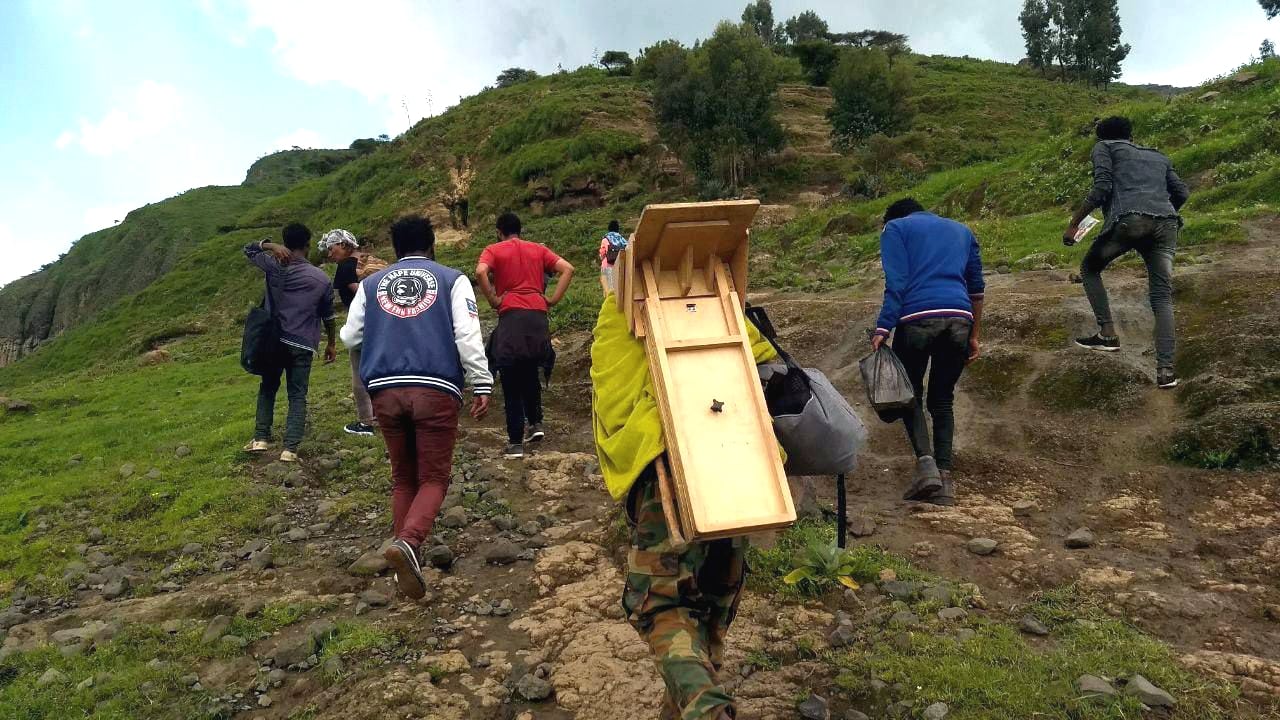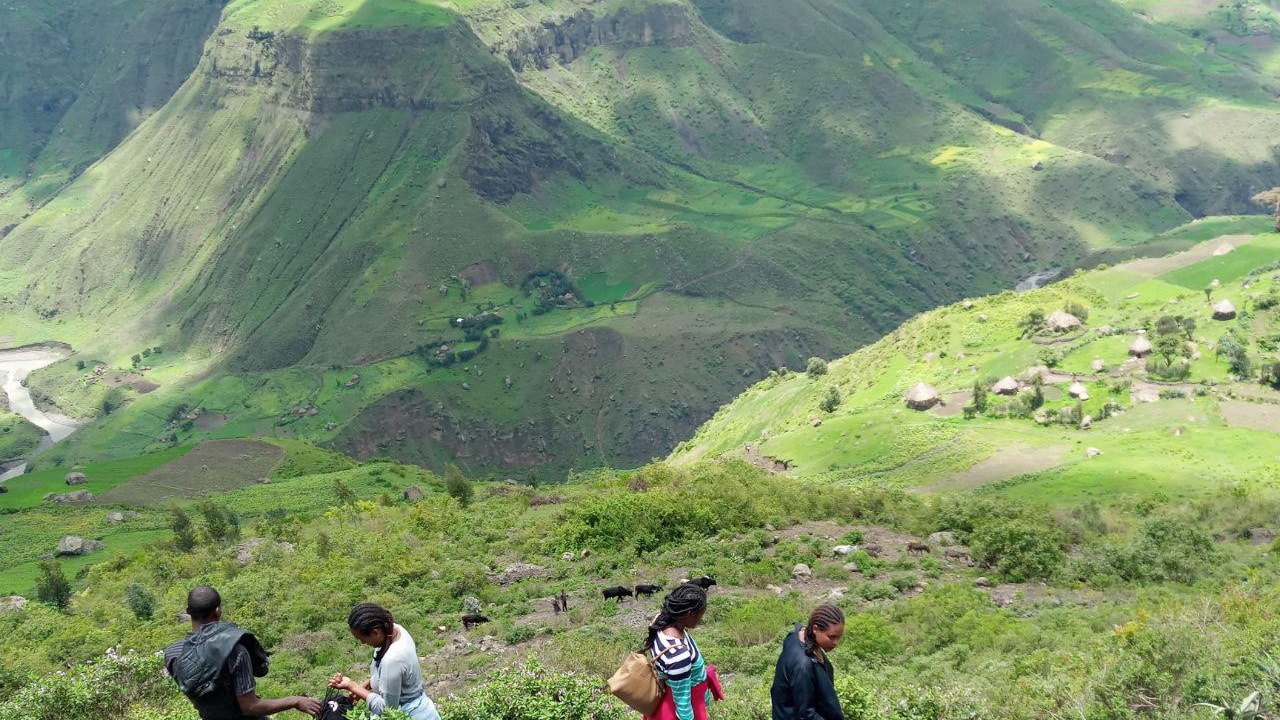How do you survey not just one but thousands of households with no internet connection, who live in areas so remote that not even a car or motorbike will travel there? This is the kind of question that Laterite Ethiopia’s Data Manager, Fitsum Dagmawi, regularly encounters in his daily work.
In this blog, Fitsum shares four things he thinks about when planning data collection projects in Ethiopia.
1. Recruit a strong team
High quality data collection relies on a local team that understands the context. All our enumerators have a university degree, are fluent in the local language, and are conversant in English.
Ethiopia is the second most populous country in Africa, and is culturally and linguistically diverse. While Amharic is the official language, more than 80 languages are spoken in different parts of the country. This means it’s essential that our enumerators, who collect data for our projects all over the country, can communicate well in the local language and understand the local customs.
That’s why instead of sending someone from the capital Addis Ababa, we travel to the areas where we will collect data and recruit our field staff from there. For example, we recently carried out enumerator recruitment in the areas of Tigray, Afar and Sidama.
2. Put in the groundwork
We carry out research all over Ethiopia, including in some of the most rural areas where information about conditions on the ground is limited. In these cases, we work with woreda (district) officials to request detailed information about each kebele (neighborhood) we plan to visit. They can inform us about things like what transport is available, what the security conditions are like, and the distances of the kebeles from the woreda center.
We also learn what the market day is for each kebele, and plan around things like religious days and festivals. We do this so we can minimize disruption and make sure people will be at home when we travel to their house.
It’s important that our visits don’t come as a surprise to community leaders and research participants. Before going out to the field, we call kebele managers, community leaders and kebele administrative members to inform them of the research we are carrying out, let them know we have spoken to the woreda, and tell them when we are planning to visit their kebele. We also share information such as ethical approvals and letters of support from government ministries. Wherever possible, we ask kebele managers to inform households we will visit before we arrive.
If there are security concerns, we may travel with a police escort or even reschedule field work.
3. When it comes to logistics, no detail is too small
We recently completed data collection for an impact evaluation of the Strengthen PSNP4 Institutions and Resilience (SPIR) project, led by evaluation partner the International Food Policy Research Institute (IFPRI). This project implements complementary interventions to expand the impact of phase four of Ethiopia’s Productive Safety Net Programme (PSNP4), a social protection system for Ethiopia’s most vulnerable households. Data collection for SPIR specifically targeted 4,300 households in the most rural communities to compare the impact of various livelihood and nutrition components on outcomes such as household wellbeing, food security, and nutritional status.
While planning data collection for this project, we learned that some households could only be reached by foot, with the closest households located four to five hours’ walk away. We couldn’t simply book accommodation for enumerators in the field, as there are no hotels, and no shops or restaurants.
So we made arrangements with development agents (government agents responsible for agricultural outreach in each kebele) and health extension workers for enumerators to stay at houses in the area, and enumerator teams carried their own water and non-perishable food for the journey. Our enumerator teams literally climbed mountains to reach participants. We even hired donkeys to help our teams carry the materials they needed, including equipment for taking anthropometric measurements.

Laterite enumerators carry equipment used to take anthropometric measurements to households in rural Ethiopia.
4. No two projects are the same
From interviewing households and farmers in rural Ethiopia, to evaluating coffee agronomy projects, to interviewing school leaders and educators about the state of education in Ethiopia, each project is unique and requires a tailored approach to data collection.
Through careful planning, we can successfully collect high quality data for our clients, while ensuring the safety and wellbeing of our enumerators and research participants.
—
Fitsum Dagmawi is a Data Manager at Laterite Ethiopia. Born and raised in Ethiopia, Fitsum holds an MBA with concentration in Project Management. He has over ten years of experience in field research, managing data collection teams, directly conducting qualitative research, and leading operations on large-scale and complex research projects in Ethiopia.
